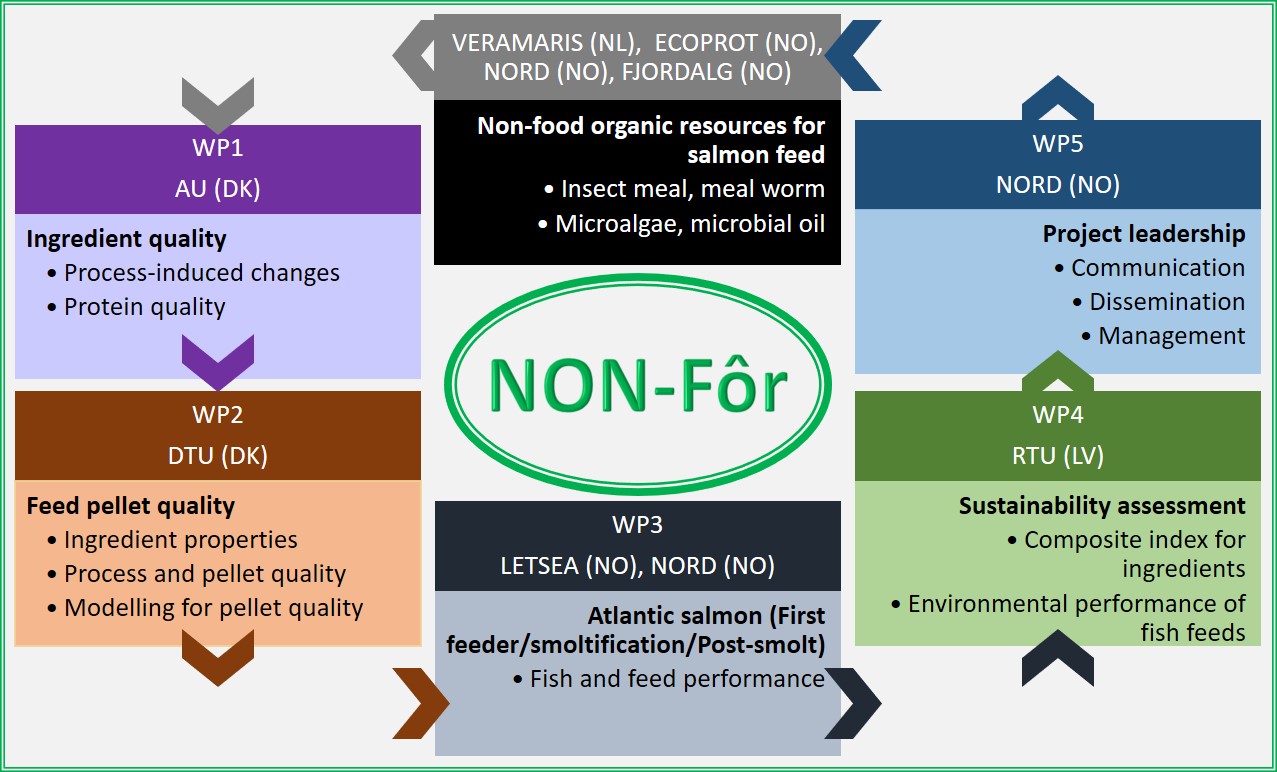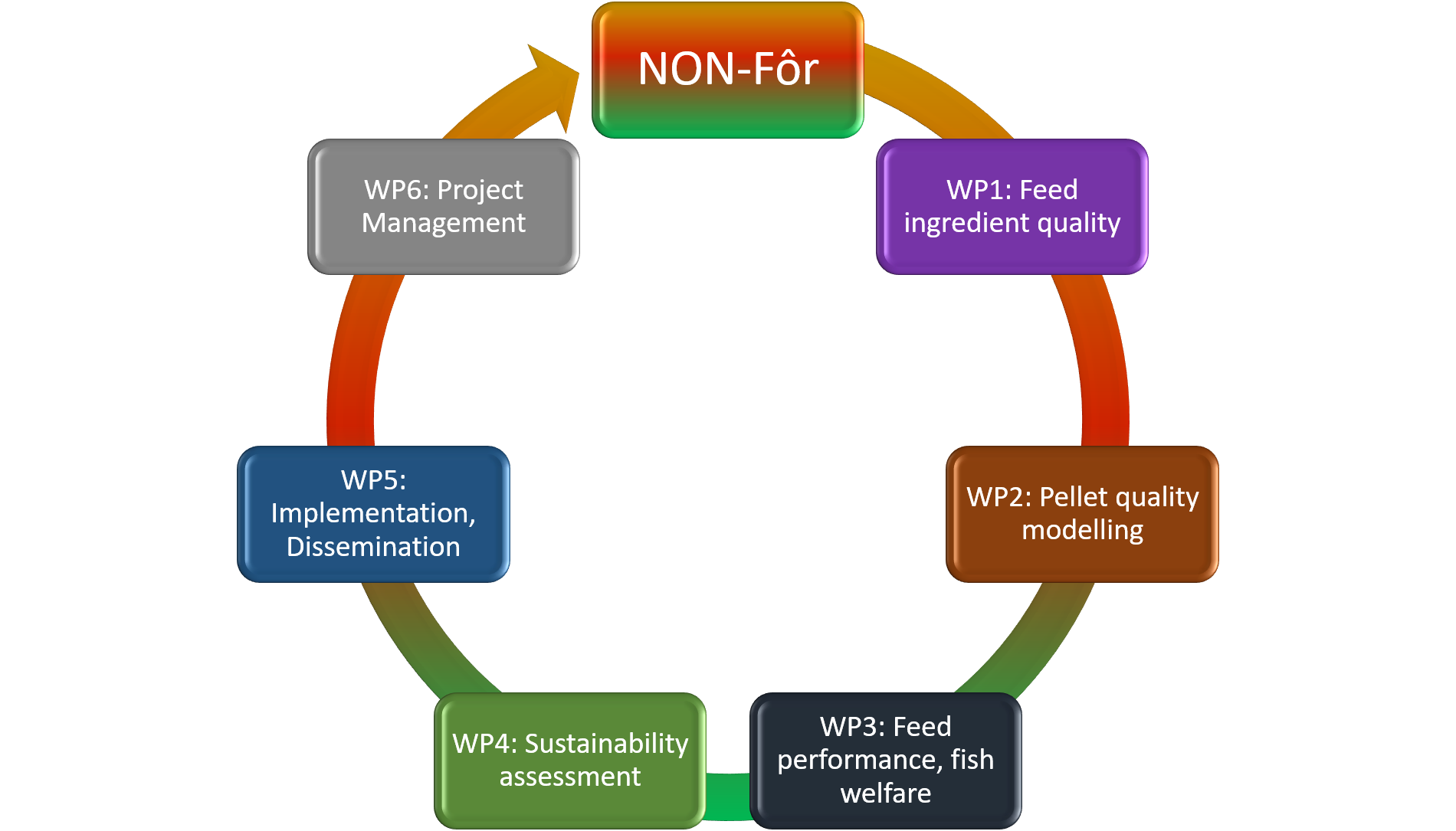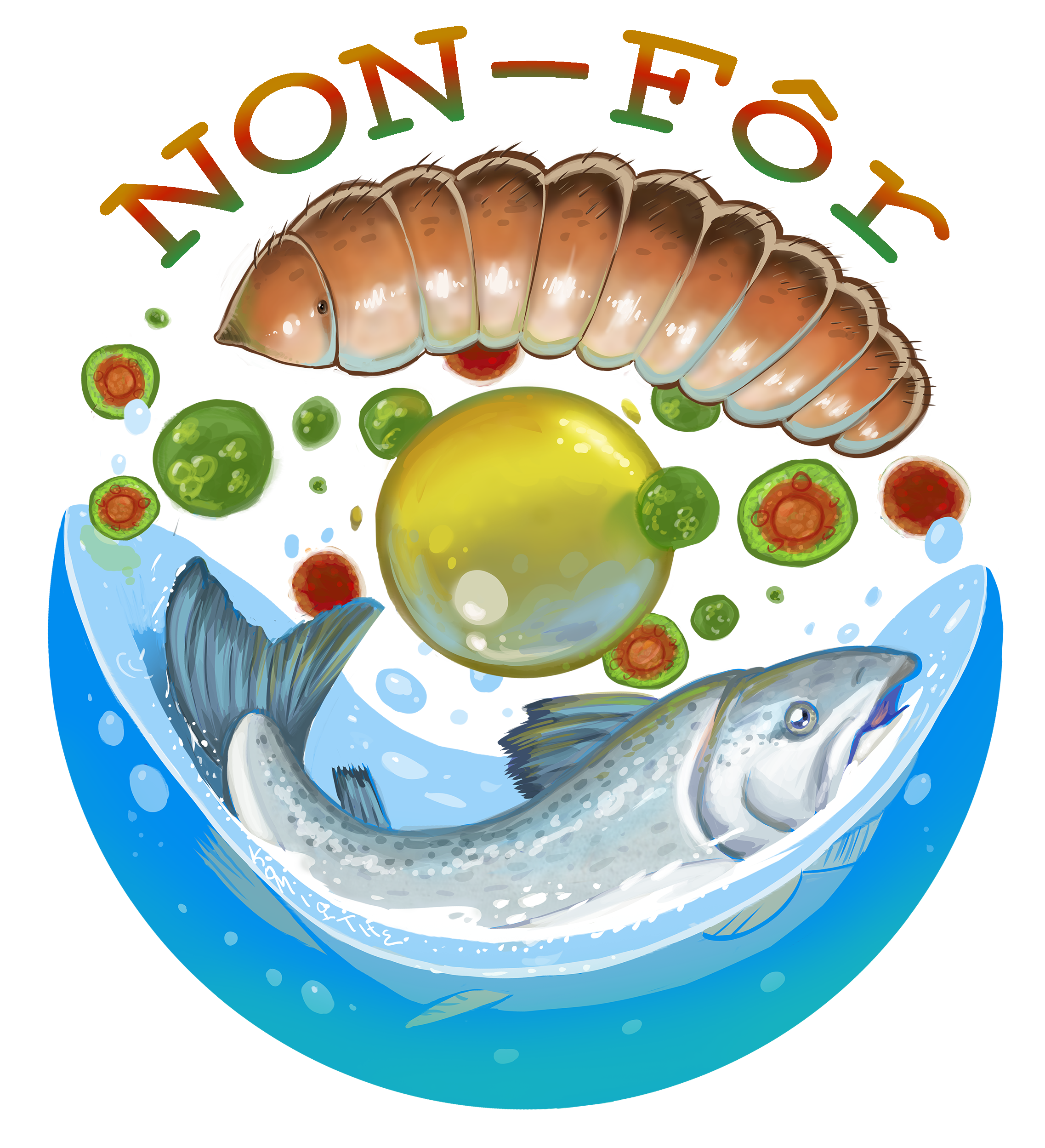A fast-track strategy will help the partners to arrive at the intended results. We will make use of the recent successful research, developed on both microalgae and insect meal and build upon these main findings. The next phase of diets will focus on key priorities identified by the commercial partners, including growth and development of first-feeders, nutrition for freshwater fish reared within intensive systems as well as the performance of both pre and post-transfer large smolts. Recent bio-prospecting programmes have identified factors within the novel raw materials that have significant effects on many important physiological and immune parameters. These factors will be assessed and utilized in greater detail in the project. The performance of the novel ingredients within the feed production process will be documented. Furthermore, the interaction between key nutrients within the formulations will be examined.
 Collaborative research divided into work packages
Collaborative research divided into work packages
The 4 technical work packages (WPs) will ensure efficient delivery of acquired knowledge to the industry. The 5th work package will ascertain efficient administration as well as communication, dissemination, and implementation of the project.
WP1 Quality of novel ingredients and feed formulationLed by Associate Professor Trine Kastrup Dalsgaard, Aarhus University; Participation: Nord, DTU, Veramaris, EcoProt AS, FjordAlg AS and NCE Aquaculture
- Biochemical composition of novel ingredients
- Protein and process-induced changes
- Feed formulation
- In-depth information about protein quality for bioavailability of amino acids
- Potential of the ingredients to support growth
- Information flow to WP2 and WP3
Led by Associate Professor Aberham Hailu Feyissu, Technical University of Denmark; Participation: AgroEngineering
- Physiochemical properties of ingredients and diets
- Process and pellet quality
- Mathematical modelling
- In-depth understanding of the feed ingredient’s behaviour during processing, combining information about their chemical composition and functional properties
- Information about their capacity to form pellets of high quality will be used to model technical quality
- In-depth investigation of the ingredient characteristics and how they affect the extruder process
- Information flow to WP3
Led by Henriette Hanssen, LetSea; Participation: Nord, Veramaris, EcoProt AS, FjordAlg AS and NCE Aquaculture
- Third-generation feed ingredients will be tested at LetSea – First feeder, smoltification, post-smolt acclimation and growth phase
- One post-smolt experiment will be conducted at Nord University to test high incorporation and combinations of the third-generation feed ingredients on nutrient digestibility, growth, and health
- LetSea will perform the start feeding (6 diets in triplicates) and smoltification trials (4-6 diets in triplicates). Nord will be responsible for the analysis of the samples from all three experiments
- The experiments will be executed to document the quality of the ingredients from the consortium partners (Veramaris, EcoProt AS, Fjoralg AS)
- The NCE network – working group on smolt will be closely involved to discuss the feeds and relevance of the data resulting from the experiments
Led by Associate Professor Jelena Pubule, Riga Technical University; Participation: Nord, Veramaris, EcoProt AS, FjordAlg AS and NCE Aquaculture
- Development of a composite index for a sustainable assessment of fish feed products
- Definition of sustainability criteria and identification of sustainability influencing factors
- Environmental performance assessment of developed fish feed products
- Sustainability assessment
- Information from WP2 and WP3 will be the input for the assessment performed under WP4
- The ingredient producers will contribute with information about the production technology and the NCE Network – working group will also be closely involved as discussion partners to ensure the relevance of information used in the models.
Led by Nord University, Professor Mette Sørensen; Participation: NCE Aquaculture, Aarhus University, Technical University of Denmark, Riga Technical University, NCE Aquaculture partnership, Veramaris, Ecoprot AS, and Fjordalg AS.
- Scientific coordination and management of all tasks within the different WPs and will promote the transfer of knowledge
- Information to improve the sustainability of the feeds used in the aquaculture sector and to improve the survival and robustness of fish in critical life stages.
- Close involvement with the aquaculture industry to ensure implementation of the new knowledge.

